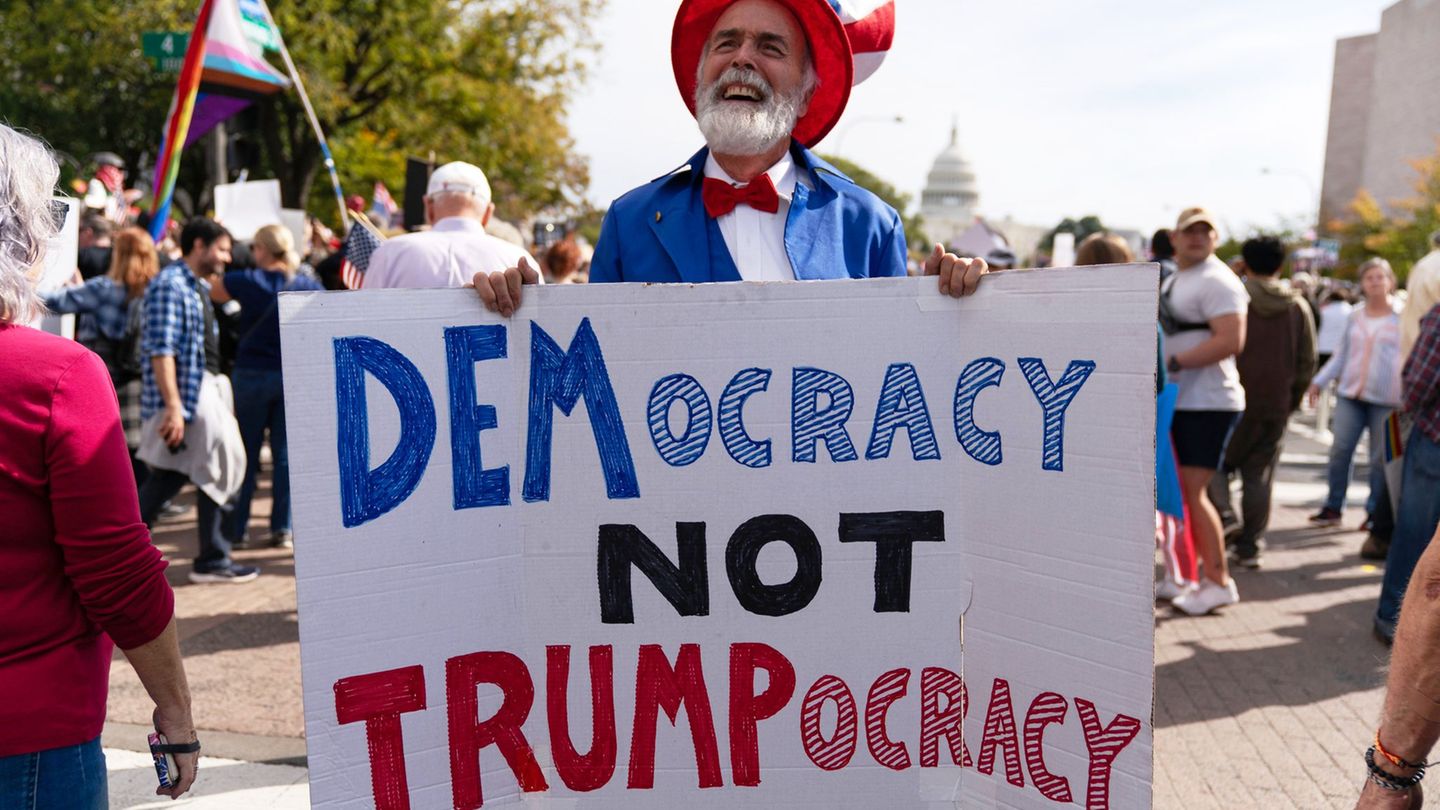study
Unconditional basic income makes happier and not lazy
Copy the current link
Add to the memorial list
A study shows that unconditional basic income makes people happier without reducing their gainful employment. Surprising: You save more and more often change the job.
According to people, an unconditional basic income makes people happier and at the same time does not lead to a decline in employment.
People with basic income had neither stopped working more often nor were statistically relevant working time reductions or a decline in income through work, the authors of the study presented in Berlin on Wednesday. However, the general well -being and mental health of basic income recipients have improved significantly.
The association My basic income had randomly selected people in individuals’ households aged 21 to 40 years with net income between 1100 and 2600 euros. 107 of them received 1200 euros per month for three years. In cooperation with the German Institute for Economic Research (DIW Berlin) and other research institutions, the participants and almost 1600 people were regularly asked about their personal situation in a comparison group.
Basic income: no significant changes in employment
Contrary to the frequent criticism of the concept of unconditional basic income, that this would have a negative impact on the labor market because people would work less or no longer, the researchers did not find any significant dealings with employment. The “often discussed withdrawal to the social hammock” did not enter the DIW. “At least not with a term of three years.”
According to the study, the basic income had an impact on working life in a different way. For example, significantly more basic income recipients changed the job in the first year and a half, as the authors carried out. Further training or studying also decided more.
With a view to the use of the additional money, it turns out that consumption expenditure rose significantly, especially for trips. Especially at the beginning of the study, the subjects with basic income “fulfill long -cherished wishes”, the association explained my basic income. “However, many save and invest later.”
Subjects with basic income more freely
Overall, the geldowns were “very responsibly” handled with the additional means, said economist and co-author Frederik Schwerter from the Frankfurt School of Finance & Management. According to the study, a large part of the basic income was saved – more than a third. Overall, on average, the recipients covered about twice as much money as the comparison group that did not receive any money.
In addition, the basic income recipients are more freely: many of them donated more money to the surveys for more money or supported family and friends. They also spent more time with friends. The DIW at least partially explains this by the fact that social activities often go hand in hand with expenses – “be it for visits to restaurants, cinema tickets or joint leisure activities”.
DIW researchers Jürgen Schupp emphasized that the basic income recipients do not basically have more free time, but an effect of basic income is apparently that they “make their free time more active”. They spend less “individual time without social contacts”.
“Positive effect” on mental health
The study authors also emphasize “a strong positive effect” of basic income “on mental health”. The “satisfaction with one’s own health, sleep and leisure” is significantly higher than in the comparison group. The effects are compared to those in therapeutic measures or “if you look at whether people, for example, are freshly divorced versus freshly married,” said Susann Fiedler, psychologist from the Vienna University of Economic Affairs.
It is also noteworthy that the improvements were stable over the entire course of the course, but otherwise the study participants did not change in their basic settings, for example with regard to their election behavior or their willingness to take risks, Fiedler said. “This means that the participants act differently – not because they have fundamentally changed as people now, but because their possibilities have changed.”
AFP
RW
Source: Stern




